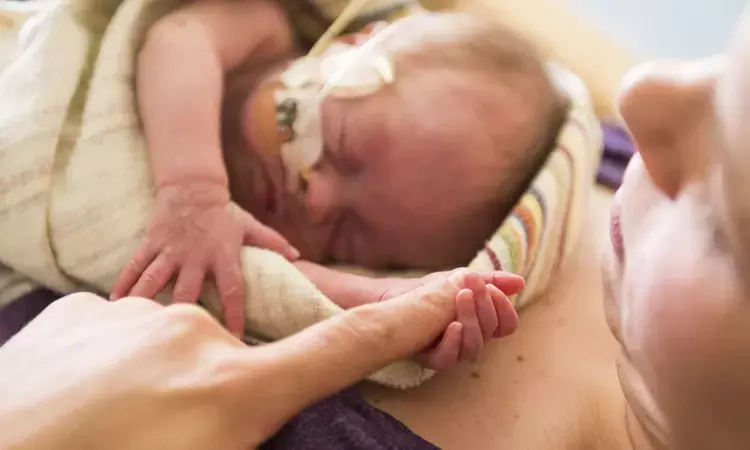- Home
- Medical news & Guidelines
- Anesthesiology
- Cardiology and CTVS
- Critical Care
- Dentistry
- Dermatology
- Diabetes and Endocrinology
- ENT
- Gastroenterology
- Medicine
- Nephrology
- Neurology
- Obstretics-Gynaecology
- Oncology
- Ophthalmology
- Orthopaedics
- Pediatrics-Neonatology
- Psychiatry
- Pulmonology
- Radiology
- Surgery
- Urology
- Laboratory Medicine
- Diet
- Nursing
- Paramedical
- Physiotherapy
- Health news
- Fact Check
- Bone Health Fact Check
- Brain Health Fact Check
- Cancer Related Fact Check
- Child Care Fact Check
- Dental and oral health fact check
- Diabetes and metabolic health fact check
- Diet and Nutrition Fact Check
- Eye and ENT Care Fact Check
- Fitness fact check
- Gut health fact check
- Heart health fact check
- Kidney health fact check
- Medical education fact check
- Men's health fact check
- Respiratory fact check
- Skin and hair care fact check
- Vaccine and Immunization fact check
- Women's health fact check
- AYUSH
- State News
- Andaman and Nicobar Islands
- Andhra Pradesh
- Arunachal Pradesh
- Assam
- Bihar
- Chandigarh
- Chattisgarh
- Dadra and Nagar Haveli
- Daman and Diu
- Delhi
- Goa
- Gujarat
- Haryana
- Himachal Pradesh
- Jammu & Kashmir
- Jharkhand
- Karnataka
- Kerala
- Ladakh
- Lakshadweep
- Madhya Pradesh
- Maharashtra
- Manipur
- Meghalaya
- Mizoram
- Nagaland
- Odisha
- Puducherry
- Punjab
- Rajasthan
- Sikkim
- Tamil Nadu
- Telangana
- Tripura
- Uttar Pradesh
- Uttrakhand
- West Bengal
- Medical Education
- Industry
Serial amnioinfusions improve survival in neonates without kidneys; long-term management remains a concern: JAMA

USA: In neonates with bilateral renal agenesis, prenatal serial amnioinfusions can mitigate neonatal lethal pulmonary hypoplasia, but infants face substantial morbidity independent of lung function, according to the RAFT trial.
In the nonrandomized clinical trial, published in the Journal of the American Medical Association (JAMA), 82% of live-born infants survived to 14 days of life or longer and placement of dialysis access, but there was a reduction in longer-term neonatal survival. Serial amnioinfusions were not associated with severe maternal complications.
A higher number of amnioinfusions, higher birth weight, and gestational age greater than 32 weeks were all factors associated with survival to 14 days. There was no occurrence of serious maternal complications, although delivery before 37 weeks gestation was universal and 61% had preterm prelabour rupture of membranes.
Bilateral renal agenesis is the most severe congenital anomaly of the fetal urinary tract. Fetal anuria leads to a lack of amniotic fluid, which depressurizes the airways, impairing pulmonary development and resulting in lethal pulmonary hypoplasia. Restoring amniotic fluid via serial amnioinfusions may promote lung development, enabling survival. Therefore, Jena L. Miller, Johns Hopkins University, Baltimore, Maryland, and colleagues aimed to assess neonatal outcomes of serial amnioinfusions initiated before 26 weeks gestation to mitigate lethal pulmonary hypoplasia.
The nonrandomized trial was conducted from 2018 to 2022 at 9 US fetal therapy centres. Centres had to have a maternal-fetal medicine doctor who had performed amnioinfusion procedures for anhydramnios or oligohydramnios at least 15 times before.
Outcomes are reported for 21 pairs of mother-fetus with confirmed anhydramnios due to isolated fetal bilateral renal agenesis without other identified congenital anomalies.
The intervention involved ultrasound-guided percutaneous amnioinfusions of isotonic fluid before 26 weeks gestation to maintain normal amniotic fluid levels. An additional three mothers elected against the infusions and entered an expectant management group providing observational data before and after delivery. All of the expectant management fetuses died.
The primary endpoint was postnatal infant survival to 14 days of life or longer with dialysis access placement.
The researchers reported the following findings:
- The trial was stopped early based on an interim analysis of 18 maternal-fetal pairs given concern about neonatal mortality and morbidity beyond the primary endpoint despite the demonstration of the efficacy of the intervention.
- There were 17 live births (94%), with a median gestational age at delivery of 32 weeks, 4 days.
- All participants were delivered before 37 weeks’ gestation. The primary outcome was achieved in 14 of 17 live-born infants.
- Factors associated with survival to the primary outcome included a higher number of amnioinfusions, higher birth weight, and gestational age greater than 32 weeks.
- Only 6 (35%) of the 17 neonates born alive survived hospital discharge while receiving peritoneal dialysis at a median age of 24 weeks of life.
"The findings indicate that serial amnioinfusions mitigated lethal pulmonary hypoplasia but were linked with preterm delivery," the researchers wrote. "The lower survival to discharge rate underscores the additional mortality burden independent of lung function."
"There is a need for additional long-term data to fully characterize the outcomes in surviving neonates and assess the mortality and morbidity burden," they concluded.
Reference:
Miller JL, Baschat AA, Rosner M, et al. Neonatal Survival After Serial Amnioinfusions for Bilateral Renal Agenesis: The Renal Anhydramnios Fetal Therapy Trial. JAMA. 2023;330(21):2096–2105.
doi:10.1001/jama.2023.21153
Dr Kamal Kant Kohli-MBBS, DTCD- a chest specialist with more than 30 years of practice and a flair for writing clinical articles, Dr Kamal Kant Kohli joined Medical Dialogues as a Chief Editor of Medical News. Besides writing articles, as an editor, he proofreads and verifies all the medical content published on Medical Dialogues including those coming from journals, studies,medical conferences,guidelines etc. Email: drkohli@medicaldialogues.in. Contact no. 011-43720751


